Tomato Paste Industry in Italy: A Summary of Productions, Export, and Quality Standards Introduction: Italy has a longstanding reputation for producing high-quality tomato products, including tomato paste. Known for its rich flavor and vibrant red color, Italian tomato paste is widely sought after by both domestic and international markets. This article provides a comprehensive summary of the tomato paste industry in Italy, focusing on its production, export market, and adherence to stringent quality standards. 1. Tomato Paste Production in Italy: Italy has a long history of tomato cultivation and processing, making it one of the leading tomato paste producers in Europe. The country benefits from a favorable climate, fertile soil, and a strong agricultural tradition, which contributes to the excellent quality of its tomato crops. The key areas for tomato production in Italy include the regions of Emilia-Romagna, Campania, and Puglia. The production process begins with carefully selecting ripe tomatoes. These tomatoes are then cleaned, crushed, and strained to obtain a smooth consistency. The resulting pulp is then cooked and concentrated, ensuring the removal of excess moisture. The final step involves packaging the paste in aseptic containers to preserve its freshness and extend its shelf life. Italian tomato paste is available in various formats ranging from cans to jars and sachets. 2. Export Market: Italian tomato paste enjoys strong demand both domestically and on the international stage. Italy has emerged as a leading exporter of tomato paste, supplying markets across the globe. The high-quality standards, authenticity, and rich taste of Italian tomato products contribute to their popularity in international markets. The main export destinations for Italian tomato paste include the United States, Germany, France, the United Kingdom, and the Netherlands. These countries value the authenticity and traditional Italian flavor profile that the paste brings to their culinary offerings. The versatility of tomato paste, along with its long shelf life, make it a coveted ingredient in various cuisines around the world. 3. Quality Standards: Italian tomato paste is renowned for its exceptional quality standards, with the industry implementing strict guidelines and certifications to ensure consumer satisfaction. a) Protected Designation of Origin (PDO): The PDO label guarantees that the product has been produced, processed, and prepared in a specific geographical area following traditional methods. This certification adds value to Italian tomato paste, offering consumers assurance of its origin and authenticity. b) Integrated Pest Management (IPM): Italy follows sustainable farming practices to enhance food safety and minimize environmental impact. Integrated Pest Management techniques are employed, reducing chemical pesticide usage in tomato production. This approach emphasizes the use of natural predators, biological controls, crop rotation, and monitoring systems to manage pests effectively. c) Quality Assurance Certifications: Italian tomato paste manufacturers adhere to stringent quality management systems, incorporating certifications like ISO 9001 and ISO 22000. These certifications ensure consistent quality control throughout the entire production process, from farm to table. d) Control Consortia: Control consortia play a vital role in ensuring the quality and authenticity of Italian tomato paste. These organizations oversee the production processes, perform product testing, and certify that the final product meets the required standards.
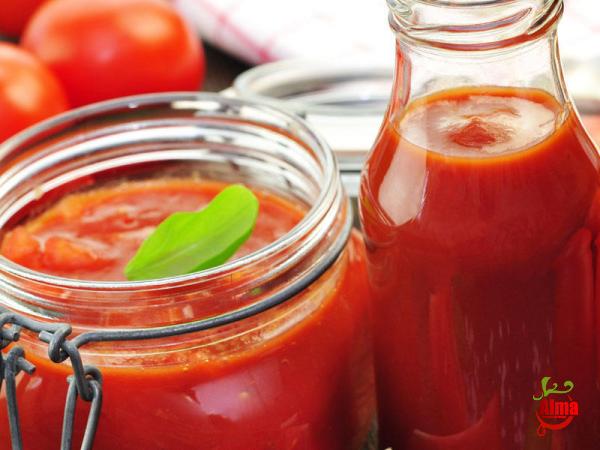
tomato paste
 4. Relevance in Italian Cuisine: Tomato paste holds great significance in Italian cuisine, serving as a base ingredient for many iconic dishes. From pizza and pasta sauces to rustic stews and soups, tomato paste adds depth, color, and concentrated flavor profiles to traditional Italian recipes. The rich taste and versatility of Italian tomato paste have made it an essential staple in Italian households and restaurants. Conclusion: Italian tomato paste is widely recognized for its superior quality, authenticity, and rich flavor. Italy’s favorable climate, agricultural expertise, and adherence to strict quality standards make it a prominent player in the global tomato paste industry. The robust export market for Italian tomato paste demonstrates the worldwide demand for its exceptional taste and versatility. Whether it is used as a base for sauces or a flavor enhancer in various culinary creations, Italian tomato paste consistently delivers the vibrant and authentic flavors that have made it a staple in kitchens around the world.Title: Tomato Paste Industry in Italy: A Summary of Productions, Export, and Quality Standards I. Overview of the Italian Tomato Paste Industry: The tomato paste industry in Italy is a significant sector within the country’s food processing industry. Italy has a long-standing tradition of tomato cultivation and processing, with its farmers and processors employing age-old techniques to produce high-quality tomato paste. The industry benefits from the country’s favorable climate, fertile soil, and robust infrastructure, which facilitates the production and export of tomato paste. II. Production Techniques and Varieties: Italian tomato paste is primarily made from a variety of tomatoes known as “solanum lycopersicum.” The selection of the right variety is crucial to ensure the desired taste, color, and consistency of the final product. San Marzano tomatoes, grown primarily in the Campania region, are particularly renowned for their exceptional flavor and are often used to produce high-quality tomato paste. Other popular varieties include the Cuore di Bue and Piennolo del Vesuvio. The production process involves carefully selecting ripe and unblemished tomatoes. After cleaning, the tomatoes are crushed and strained to remove the seeds and any unwanted fibers. The resulting pulp is then cooked over low heat to concentrate the flavors and remove excess moisture. This process helps enhance the richness of the tomato paste. Finally, the paste is packaged in aseptic containers to preserve its freshness and extend its shelf life.
4. Relevance in Italian Cuisine: Tomato paste holds great significance in Italian cuisine, serving as a base ingredient for many iconic dishes. From pizza and pasta sauces to rustic stews and soups, tomato paste adds depth, color, and concentrated flavor profiles to traditional Italian recipes. The rich taste and versatility of Italian tomato paste have made it an essential staple in Italian households and restaurants. Conclusion: Italian tomato paste is widely recognized for its superior quality, authenticity, and rich flavor. Italy’s favorable climate, agricultural expertise, and adherence to strict quality standards make it a prominent player in the global tomato paste industry. The robust export market for Italian tomato paste demonstrates the worldwide demand for its exceptional taste and versatility. Whether it is used as a base for sauces or a flavor enhancer in various culinary creations, Italian tomato paste consistently delivers the vibrant and authentic flavors that have made it a staple in kitchens around the world.Title: Tomato Paste Industry in Italy: A Summary of Productions, Export, and Quality Standards I. Overview of the Italian Tomato Paste Industry: The tomato paste industry in Italy is a significant sector within the country’s food processing industry. Italy has a long-standing tradition of tomato cultivation and processing, with its farmers and processors employing age-old techniques to produce high-quality tomato paste. The industry benefits from the country’s favorable climate, fertile soil, and robust infrastructure, which facilitates the production and export of tomato paste. II. Production Techniques and Varieties: Italian tomato paste is primarily made from a variety of tomatoes known as “solanum lycopersicum.” The selection of the right variety is crucial to ensure the desired taste, color, and consistency of the final product. San Marzano tomatoes, grown primarily in the Campania region, are particularly renowned for their exceptional flavor and are often used to produce high-quality tomato paste. Other popular varieties include the Cuore di Bue and Piennolo del Vesuvio. The production process involves carefully selecting ripe and unblemished tomatoes. After cleaning, the tomatoes are crushed and strained to remove the seeds and any unwanted fibers. The resulting pulp is then cooked over low heat to concentrate the flavors and remove excess moisture. This process helps enhance the richness of the tomato paste. Finally, the paste is packaged in aseptic containers to preserve its freshness and extend its shelf life.
Specifications of tomato paste
 III. Quality Assurance Measures: The Italian tomato paste industry places a strong emphasis on maintaining strict quality standards. Several measures are in place to ensure the authenticity and quality of the final product. a) Tracciabilità: Italy has implemented a rigorous traceability system, which allows consumers to track the entire production process of tomato paste. This system ensures transparency and accountability and helps build trust between producers and consumers. b) Quality Inspection: Control consortia and independent certifying bodies carry out rigorous quality inspections throughout the production process. These inspections involve testing for parameters such as acidity, Brix level, color, and taste to ensure compliance with industry standards. c) Organic and Sustainable Production: Increasingly, Italian tomato paste producers are adopting organic and sustainable farming practices. This includes minimizing the use of synthetic fertilizers and pesticides to promote environmental sustainability and produce healthier, chemical-free products. IV. Market Trends and Export Opportunities: The international demand for Italian tomato paste continues to grow as consumers worldwide appreciate the authenticity and superior taste of this product. Italy’s strategic geographic location, coupled with its strong agricultural infrastructure, positions the country as a leading exporter of tomato paste. The United States is one of the largest importers of Italian tomato paste, driven by its love for Italian cuisine and the authenticity it provides. Germany, France, the United Kingdom, and the Netherlands are also significant consumers of Italian tomato paste. Additionally, emerging markets in Asia, particularly China and India, present promising export opportunities for Italian tomato paste manufacturers. V. Value-addition and Packaging Innovations: Italian tomato paste manufacturers continuously strive to add value to their products through packaging and innovative product differentiation. They offer a range of packaging options, including cans, jars, and sachets, to cater to different customer preferences and usage requirements. Packaging innovations such as convenient portion-sized sachets have gained popularity, particularly among consumers looking for single-use options. Additionally, manufacturers have started to develop innovative variants of tomato paste, such as organic, low-sodium, and flavored options, to cater to evolving consumer preferences and dietary requirements. VI. Culinary Applications and Versatility: Italian tomato paste is a versatile ingredient that finds application in a wide range of culinary creations. It serves as a base for a variety of sauces, including pizza sauce, pasta sauce, and ragu. The concentrated flavor and rich red color of Italian tomato paste also make it a perfect ingredient for stews, soups, and braises, adding depth and complexity to these dishes. Moreover, tomato paste is a crucial component in the production of other tomato-based products such as ketchup, salsa, and tomato puree. Its concentrated nature allows for easy transportation and storage, making it a preferred choice for both residential and commercial kitchens.
III. Quality Assurance Measures: The Italian tomato paste industry places a strong emphasis on maintaining strict quality standards. Several measures are in place to ensure the authenticity and quality of the final product. a) Tracciabilità: Italy has implemented a rigorous traceability system, which allows consumers to track the entire production process of tomato paste. This system ensures transparency and accountability and helps build trust between producers and consumers. b) Quality Inspection: Control consortia and independent certifying bodies carry out rigorous quality inspections throughout the production process. These inspections involve testing for parameters such as acidity, Brix level, color, and taste to ensure compliance with industry standards. c) Organic and Sustainable Production: Increasingly, Italian tomato paste producers are adopting organic and sustainable farming practices. This includes minimizing the use of synthetic fertilizers and pesticides to promote environmental sustainability and produce healthier, chemical-free products. IV. Market Trends and Export Opportunities: The international demand for Italian tomato paste continues to grow as consumers worldwide appreciate the authenticity and superior taste of this product. Italy’s strategic geographic location, coupled with its strong agricultural infrastructure, positions the country as a leading exporter of tomato paste. The United States is one of the largest importers of Italian tomato paste, driven by its love for Italian cuisine and the authenticity it provides. Germany, France, the United Kingdom, and the Netherlands are also significant consumers of Italian tomato paste. Additionally, emerging markets in Asia, particularly China and India, present promising export opportunities for Italian tomato paste manufacturers. V. Value-addition and Packaging Innovations: Italian tomato paste manufacturers continuously strive to add value to their products through packaging and innovative product differentiation. They offer a range of packaging options, including cans, jars, and sachets, to cater to different customer preferences and usage requirements. Packaging innovations such as convenient portion-sized sachets have gained popularity, particularly among consumers looking for single-use options. Additionally, manufacturers have started to develop innovative variants of tomato paste, such as organic, low-sodium, and flavored options, to cater to evolving consumer preferences and dietary requirements. VI. Culinary Applications and Versatility: Italian tomato paste is a versatile ingredient that finds application in a wide range of culinary creations. It serves as a base for a variety of sauces, including pizza sauce, pasta sauce, and ragu. The concentrated flavor and rich red color of Italian tomato paste also make it a perfect ingredient for stews, soups, and braises, adding depth and complexity to these dishes. Moreover, tomato paste is a crucial component in the production of other tomato-based products such as ketchup, salsa, and tomato puree. Its concentrated nature allows for easy transportation and storage, making it a preferred choice for both residential and commercial kitchens.
buy tomato paste
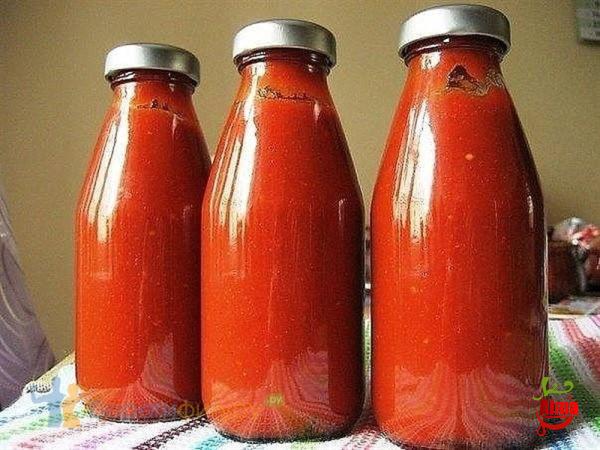 VII. Impact of Seasonality and Weather on Production: Tomato paste production in Italy is influenced by seasonality and weather conditions. The main tomato harvest period typically begins in late summer and extends into early autumn. This is when the tomatoes are at their peak ripeness, resulting in the best-quality paste. Unfavorable weather conditions, such as excess rainfall or extreme temperatures, can impact the quantity and quality of tomato crops and, subsequently, tomato paste production. To mitigate the effects of unfavorable weather, some Italian tomato paste manufacturers have invested in greenhouse cultivation techniques and irrigation systems. This helps maintain a consistent supply of quality tomatoes throughout the year. VIII. Competitiveness and Industry Challenges: While the Italian tomato paste industry enjoys a strong position in the global market, it faces a few challenges. Increasing competition from other tomato paste-producing countries, such as Spain and China, poses a threat to Italian market share. These countries offer lower production costs and can sometimes produce tomato paste at a lower price point. Additionally, seasonal fluctuations in tomato crops due to factors like weather conditions and plant diseases can impact the availability and price of raw materials. This requires manufacturers to have robust sourcing strategies and effective supply chain management in place. IX. Technological Advancements: The Italian tomato paste industry has embraced technological advancements to enhance production efficiency and product quality. From automated harvesting equipment to advanced packaging solutions, technology plays a vital role in streamlining operations and reducing costs. Furthermore, advancements in processing techniques, such as low-temperature drying and vacuum evaporation, have allowed for better preservation of the natural flavors and nutritional content of tomatoes. X. Conclusion: The tomato paste industry in Italy enjoys a well-deserved reputation for producing high-quality products. By embracing traditional farming practices combined with modern technology, Italian tomato paste manufacturers adhere to stringent quality standards and offer consumers an authentic taste experience. With a strong focus on traceability, quality control, and sustainability, Italian tomato paste continues to meet the evolving demands of the global market. As the world’s love for Italian cuisine grows, so does the demand for this staple ingredient, solidifying Italy’s position as a prominent player in the tomato paste industry.
VII. Impact of Seasonality and Weather on Production: Tomato paste production in Italy is influenced by seasonality and weather conditions. The main tomato harvest period typically begins in late summer and extends into early autumn. This is when the tomatoes are at their peak ripeness, resulting in the best-quality paste. Unfavorable weather conditions, such as excess rainfall or extreme temperatures, can impact the quantity and quality of tomato crops and, subsequently, tomato paste production. To mitigate the effects of unfavorable weather, some Italian tomato paste manufacturers have invested in greenhouse cultivation techniques and irrigation systems. This helps maintain a consistent supply of quality tomatoes throughout the year. VIII. Competitiveness and Industry Challenges: While the Italian tomato paste industry enjoys a strong position in the global market, it faces a few challenges. Increasing competition from other tomato paste-producing countries, such as Spain and China, poses a threat to Italian market share. These countries offer lower production costs and can sometimes produce tomato paste at a lower price point. Additionally, seasonal fluctuations in tomato crops due to factors like weather conditions and plant diseases can impact the availability and price of raw materials. This requires manufacturers to have robust sourcing strategies and effective supply chain management in place. IX. Technological Advancements: The Italian tomato paste industry has embraced technological advancements to enhance production efficiency and product quality. From automated harvesting equipment to advanced packaging solutions, technology plays a vital role in streamlining operations and reducing costs. Furthermore, advancements in processing techniques, such as low-temperature drying and vacuum evaporation, have allowed for better preservation of the natural flavors and nutritional content of tomatoes. X. Conclusion: The tomato paste industry in Italy enjoys a well-deserved reputation for producing high-quality products. By embracing traditional farming practices combined with modern technology, Italian tomato paste manufacturers adhere to stringent quality standards and offer consumers an authentic taste experience. With a strong focus on traceability, quality control, and sustainability, Italian tomato paste continues to meet the evolving demands of the global market. As the world’s love for Italian cuisine grows, so does the demand for this staple ingredient, solidifying Italy’s position as a prominent player in the tomato paste industry.
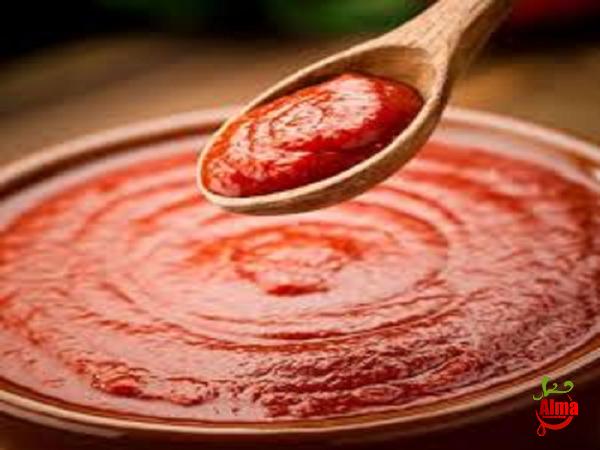

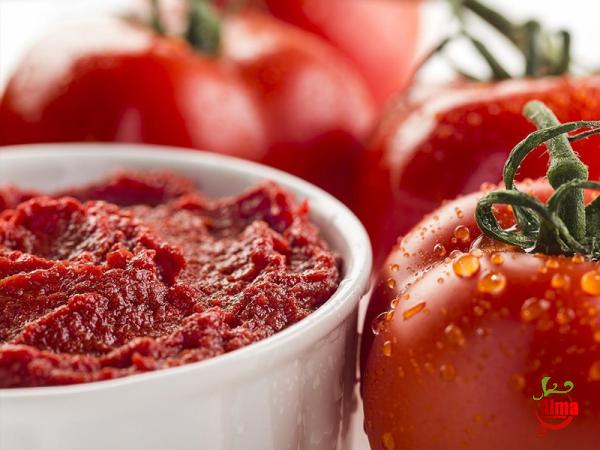
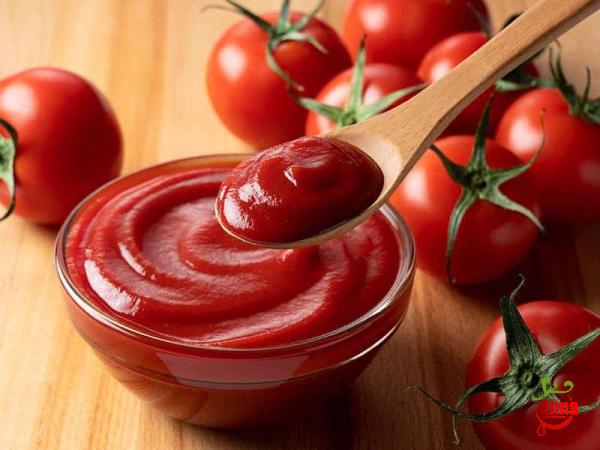




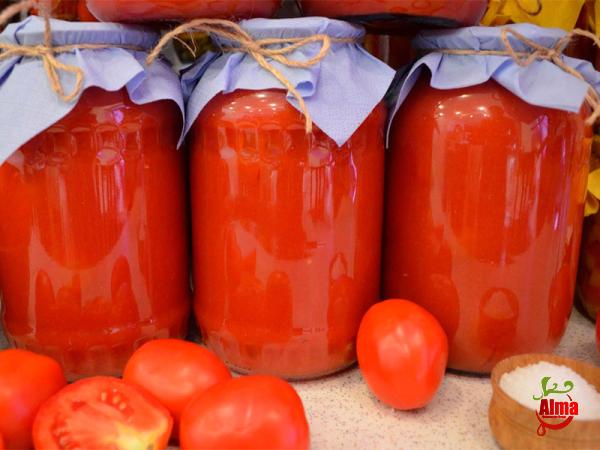
Your comment submitted.